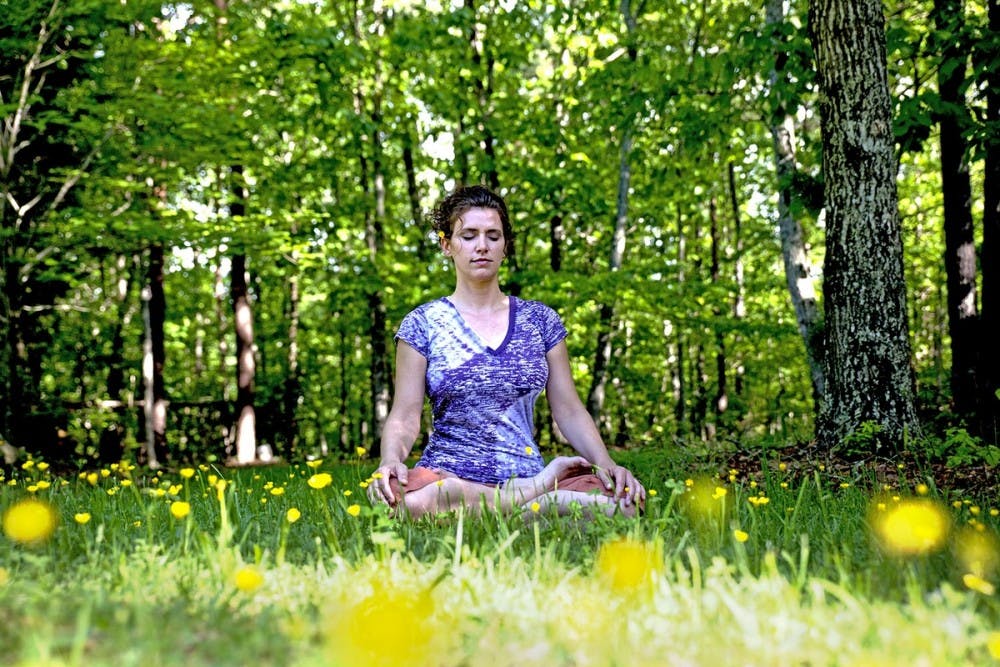At the University, various departments are investigating the use of alternative therapies. Alternative therapies are treatments that are either used instead of or in conjunction with medical treatments, such as acupuncture, yoga and meditation.
Dr. Ina Stephens, an associate professor of pediatrics and medical education and a registered yoga instructor, is in the midst of conducting research that investigates the effects of prenatal yoga therapy on high-risk pregnant mothers, which has never been done in the United States.
In fact, there have only been about three studies done in this field and all of them were done in India. The studies conducted in India showed that prenatal yoga was beneficial in helping with postpartum depression, stress, gestational hypertension and gestational diabetes.
Stephens received grant funding from the Department of Obstetrics and Gynecology and the Contemplative Sciences Center at the University to do this clinical trial which will begin in the fall. To measure the benefits of prenatal yoga, Stephens will look at different outcomes such as depression scores during the pregnancy and after delivery, stress scores, and physical factors such as heart rate, blood pressure and gestational age.
Maheswari Murugesan, a doctoral student at the School of Nursing, is completing a dissertation in the field of alternative therapies as well. She is researching the use of a gentle form of yoga in individuals who are diagnosed with atrial fibrillation.
Leslie Hubbard, program director for Student Learning and Initiatives for the CSC, is working on designing a six-week medical yoga and mindfulness intervention for individuals diagnosed with lupus, an autoimmune disorder that has no treatments yet. Hubbard said this intervention is meant to teach “basic medical yoga, meditation, compassion, self-care and effective communication skills when in pain.”
According to Hubbard, in past research, mindfulness-based stress reduction has proven to have a positive effect on lupus symptoms such as depression and inflammation.
Hubbard said that alternative therapies are effective if practiced regularly with proper instruction, similarly to prescribed medications.
According to Stephens, the term “alternative therapies” is not the right word to describe these sets of treatments because they are prescribed in addition to traditional medicine rather than substituting them. Thus, “complementary medicine” or “integrative health” are better terms to describe these treatments.
Stephens said that when a child comes in with chronic depression, she prescribes not only antidepressants but also complementary therapy such as medical yoga techniques. This can include deep breathing techniques, mindful movement or asana.
“The clinic I run is not a yoga class,” Stephens said. “It is about individual evaluations for every patient — every patient is treated differently and evaluated for what they need and the combination of conventional therapy and complementary therapy.”
Dr. Daniel Becker, a professor of palliative medicine and director of the Center for Biomedical Ethics and Humanities, highlights an important concern about alternative therapies. He said that many of his clinic patients are unable to afford alternative therapies which are often expensive. Although acupuncture and massages may help with chronic pains or aches, low-income patients often have difficulty paying for them.
Becker also avoids suggesting herbal medicine or extra vitamins.
“The multibillion dollar vitamin/supplement industry is able to sell stuff that does not work because desperate people need to try something new,” Becker said in an email.
However, Becker said that mindfulness-based stress reduction and exercise is free and and works in different ways for different patients.
The CSC has supported alternative therapies in a variety of different areas by housing the lupus project and giving grants to individuals like Stephens. Hubbard said that the CSC also supports guest speakers to share their research and have conversations about furthering the field of alternative therapies.







